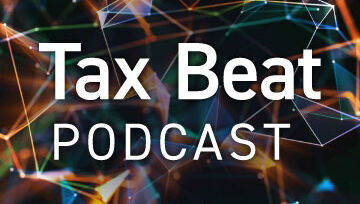The Infrastructure Investment and Jobs Act, PL 117-58 (IIJA) aims to resolve many infrastructure problems that plague parts of America. Alongside provisions for significant spending on infrastructure improvements, the IIJA includes provisions to raise revenue to cover the cost.
New Reporting Requirements
One revenue raising provision imposes new reporting requirements on brokers of cryptocurrency. The cryptocurrency community has raised concerns that the term “broker” is too loosely defined and will include many parties that do not meet the more commonly understood idea of a broker.
The intent of this provision in IIJA is to ensure large cryptocurrency transactions in excess of $10,000 are reported to the IRS, similar to current reporting requirements for large cash transactions, and require third party reporting on Form 1099-B to the IRS of transactions in cryptocurrency during a tax year. These reporting requirements apply to transactions occurring after December 31, 2022.
The IIJA applies these reporting rules to “brokers” that are responsible for providing any service accomplishing transfers of digital assets on behalf of another person. This certainly includes cryptocurrency exchanges as brokers but could pull in other service providers as well. Digital assets are broadly defined as any “digital representation of value which is recorded on a cryptographically secured distributed ledger or any similar technology.” Digital assets may extend beyond cryptocurrency to include non-fungible tokens (NFTs), which also use blockchains to transfer and hold digital art and recordings.
Expected Outcomes
Under IIJA, a digital asset broker will acquire information similar to “Know Your Customer” (KYC) in banking, which would include basic data like name, social security number or EIN, address, etc.
Third-party reporting of cryptocurrency transfers is expected to improve tax reporting compliance of these transactions resulting in additional revenue to help fund the IIJA spending. Some cryptocurrency investors may be avoiding reporting taxable income from their transactions, and third-party reporting will help the IRS identify these taxpayers. As the industry grows, third-party reporting will assist many more taxpayers in correctly calculating their taxable income. Currently, some central exchanges (i.e., Coinbase, Binance, Kraken, Gemini, etc.) do not provide consistent or easy to follow statements, especially when compared to consolidated Form 1099-B brokerage statements from traditional finance brokers (i.e. Charles Schwab, Principal, Fidelity, etc.).
Industry Concerns
Of concern to many in the cryptocurrency industry is the way the required reporting provision does not clearly define the term “broker.” This term could be applied broadly to include a cryptocurrency miner, validator or developer. The Department of the Treasury has indicated that it will not include miners or developers in the term “broker” when regulations are drafted, but that doesn’t mean Treasury won’t change its position somewhere down the line.
Other concerns raised by the industry include:
Increased Opportunity to Influence Cryptocurrency Innovation
Treasury could apply the reporting rules differently to cryptocurrencies with different methods of consensus and finality. For instance, some cryptocurrencies use a type of proof of stake mechanism (as opposed to Bitcoin’s proof of work mechanism). Many forms of proof of stake allow coin holders to “stake” their cryptocurrency by delegating their coins to staking pools or “validators”.
These “validators” use that stake to validate transactions and secure the blockchain to receive rewards as opposed to “miners” who solve complex problems to secure the blockchain (proof of work) to receive rewards. Proof of stake consensus mechanisms are very popular in many of the smaller cap cryptocurrencies as they are much more eco-friendly and usually allow for faster transactions per second than proof of work cryptocurrencies. What if the Treasury were to determine that “validators” were deemed brokers while “miners” are not?
More Transactions Reported as Taxable
Centralized cryptocurrency exchanges (like Coinbase, Binance, Kraken, etc.) will most likely report every transaction of funds over $10,000 as a taxable transaction even if a taxpayer is merely moving the cryptocurrency off the exchange into their personal noncustodial wallet. This may mislead some unsophisticated taxpayers into thinking every transaction is a taxable transaction and may cause issues in reporting to the IRS.
Similarly, the IRS may determine a transaction is taxable simply because it was reported on a Form 1099-B, when in reality, the transaction was merely a movement of funds between the taxpayer’s own wallets. Exchanges, as currently configured do not know which blockchain address belongs to which individuals.
Difficult to Report Decentralized Exchange Transactions
It may be difficult for the IRS to apply this third-party reporting requirement to a decentralized exchange or a decentralized autonomous organization (DAO). These digital-only entities merely facilitate transactions or voting with the usage of coins or tokens through computer code. There is no person to hold accountable and little to no information is known about coin holders who use these exchanges. Who would the government entity reach out to for these organizations?
How Cherry Bekaert Can Help
All in all, the IIJA is a big step forward in requiring third-party reporting of cryptocurrency transactions. The cryptocurrency industry has become so large and so significant that Congress has given the IRS and Treasury new tools for regulation. As innovation continues to occur in this space, so will government oversight and regulation.
If you have questions regarding your cryptocurrency transactions and activities, please reach out to your Cherry Bekaert tax advisor.




